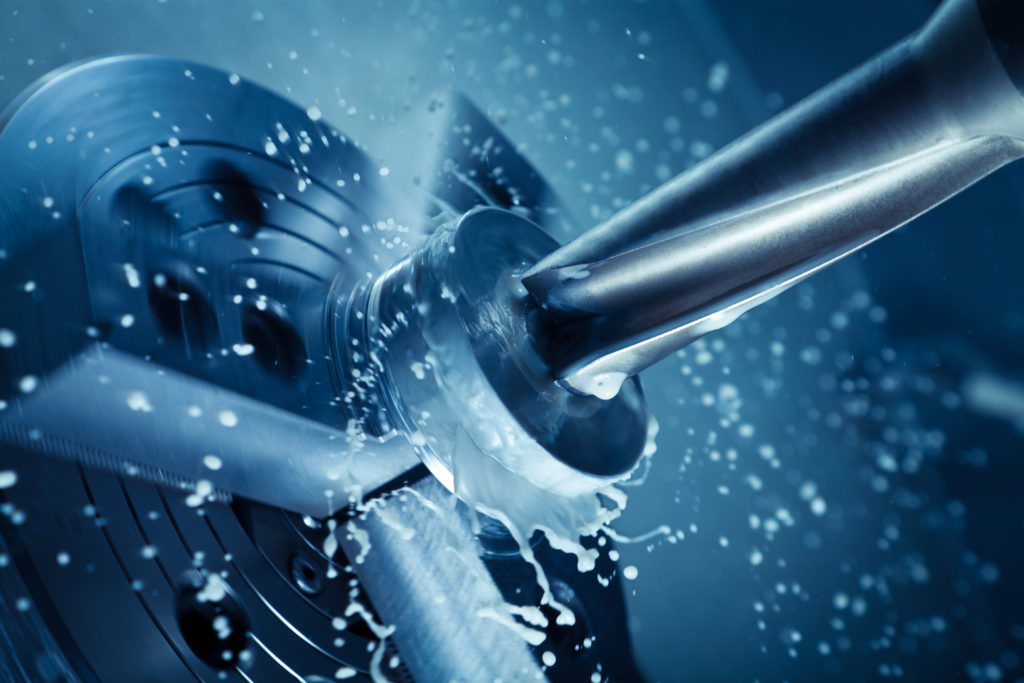The manufacturing sector and the COVID-19 crisis: message from the President of CECIMO

The COVID-19 pandemic has tremendously changed the world we knew and caused a domino-effect leading to serious and interconnected crises in the public health, economic, financial, and social domains.
The public health crisis we are facing is having a profound negative impact on all economic sectors. The European machine tool industry has been no exception, as machine tool companies across Europe have experienced significant decreases in production levels, sales, machine servicing, and employment throughout.
At this stage, it is hard to quantify the economic damage the outbreak has caused to the machine tool industry, but, according to our surveys, businesses are operating well below their full capacity. On average, the operating rate among many CECIMO companies has been below 50% in the period between March and April. Specific activities in companies have also been carried out well below full capacity, especially those related to machinery installation and servicing, as they involve the movement of specialised technical staff across borders.
These activities have been consistently undertaken by companies below 40% capacity since the outbreak began since mid-March, according to CECIMO’s survey data. In terms of the future economic performance of the machine tool industry, the latest forecast prepared by our partners at Oxford Economics suggests that the coronavirus pandemic will force a significant contraction of the European machine tool industry in 2020, with machine tool consumption levels dropping by -25,8%, due mostly to a weakened demand for capital goods in machine tool buying sectors (such as automotive or aerospace).
However, the situation could potentially improve in 2021, as manufacturing companies restart their activities and machinery demand recovers. In this scenario, machine tool consumption in Europe would increase by 19,6% in 2021. This is a significant rebound that would indicate that European manufacturers are capable of reorganizing their businesses and deliver a strong performance after a critical period for our industry.
The recovery of the machine tool industry is key to improve the European economy’s technological capabilities and support its growth. Our industries are of strategic importance for Europe, with a total turnover of around 27 billion euros only in 2019. The European machine tool sector is also one of the most inventive, contributing to research and innovation in fields such as additive manufacturing, robotics, and artificial intelligence. A strong and competitive manufacturing sector should classify as a top priority for policymakers, as industrial activities are essential for advancement and technological progress and to avoid future economic hardships.
Responses from the EU member states to the pandemic have not always been coherent, which has unfortunately led to a fragmented and fenced approach in the European market.
Only through a unified European approach and a fast implementation of the EU industrial strategy, can we ensure that the Single Market continues to function in all circumstances and without any barriers.
We believe that the industrial strategy is going in the right direction, successfully bringing the EU through twin transitions. In light of this, CECIMO has developed a position paper highlighting the key areas most relevant to our sector. In addition to the latter commitment, our association will certainly represent the interest of manufacturers in the European Parliament Intergroup on Sustainable, long-term Investments & Competitive European Industry and will promote a dialogue on the future of the industry and long-term investments in Europe.
As the European Association that represents more than a third of the world machine tool (MT) production, we have put in place different actions during the past months to ensure that the voice of manufacturers is heard and to support our members and their businesses during the time of crisis. One of said actions was CECIMO’s recommendations on Covid-19 focusing on the measures needed to help the economy and guarantee the well-being of the employees of our national associations’ member companies.
Another crucial action of CECIMO was carried out in the field of additive manufacturing. The beginning of the Covid-19 crisis posed a challenge to the usual production and distribution channels for medical devices.
In March, CECIMO launched a call to action, upon request by the European Commission, through which CECIMO asked the (3D-Printing) sector to help in the printing of valves, masks and other material of primary importance in the fight against COVID-19. The participation rate has been very high and CECIMO is hoping that the sector will have the possibility to support the development of crucial medical equipment even further. The call to action also allowed us to interact directly with many industry players and realize what are the challenges that they are currently facing. Along with its national associations, CECIMO has decided to develop a list of recommendation for policymakers that would address those challenges and unleash the potential of the additive manufacturing sector.
The health and well-being of our entire community is our top concern. We encourage everyone to please remain vigilant about personal hygiene and follow your government’s regulations.
We wish to thank all our national associations and the CECIMO team for their hard work. The CECIMO’s leadership has the utmost faith that we will overcome this difficult time.
Dr Hans-Martin Schneeberger
President of CECIMO
